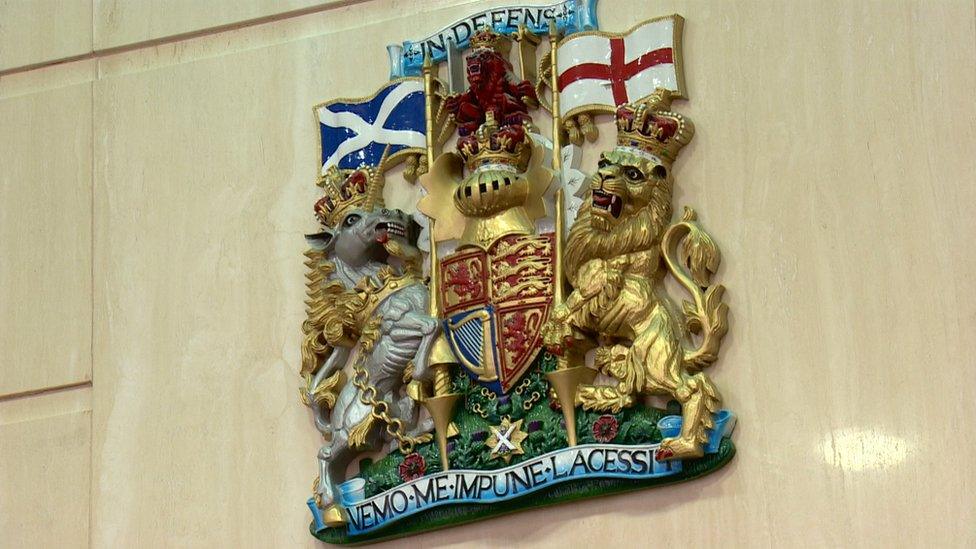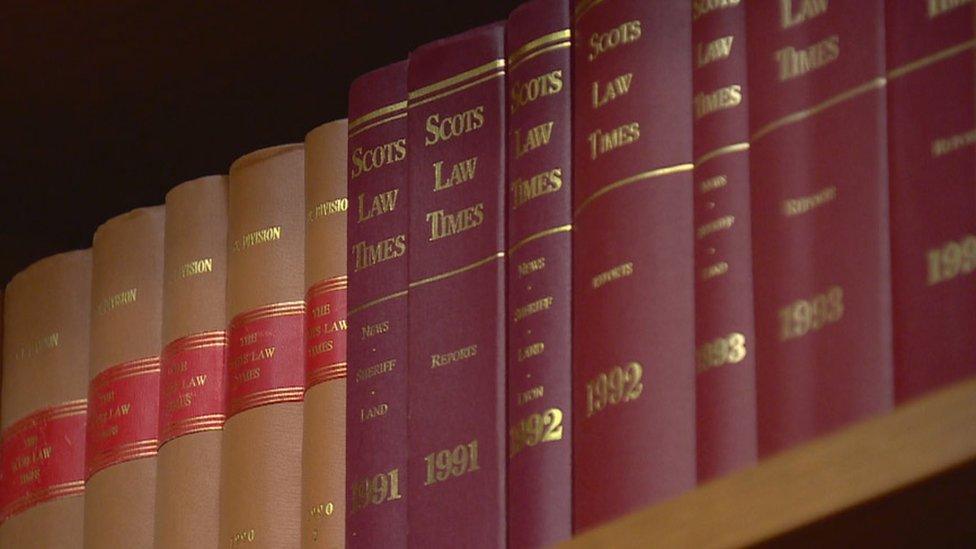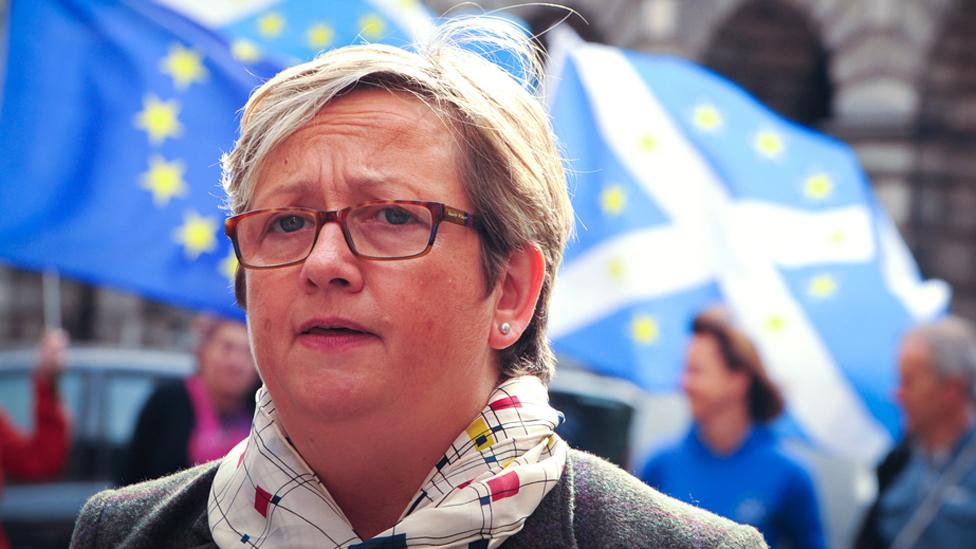What is the nobile officium?
- Published

Campaigners want the Court of Session to rule on whether it could use a special power called the nobile officium to sign an extension request letter on behalf of the government.
What is the nobile officium?
The procedure of petitioning the nobile officium is unique to Scots law, but is far from being a forgotten backwater of the legal system.
Its name is a Latin term meaning the "noble office".
Some classical scholars argue about the pronunciation of the term, but there is widespread agreement the syllables should be of equal length with a hard 'c' (nob-eel-ay off-icky-um).
The procedure offers the opportunity to provide a remedy in a legal dispute where none exists.
In other words it can plug any gap in the law or offer mitigation if the law, when applied, would be seen to be too strict - oppressive, in the legal term.
When is it used?

It is used in both criminal and civil cases and is highly versatile.
In the Court of Session, Scotland's highest civil court, petitions to the nobile officium are most frequently used in financial and property cases such as trusts, bankruptcy and sequestration. It is also used in complex matters involving family and child law where they can provide a bespoke solution.
In the High Court, which deals with criminal cases, it has been used where there are claims of bias in the proceedings or to challenge the legal ruling of a judge.
It is also been used as a standard way of challenging a finding of contempt of court.
There are, however, restrictions on its use. These include a general expectation that a petition should not request something that goes against statute law, such as requiring someone to act in an unlawful way.
'No wrong without a remedy'
Dr Stephen Thomson, a law professor at City University of Hong Kong, wrote a book on the procedure.
He said the nobile officium would normally be used when there were "exceptional or unforeseen circumstances requiring redress."
It was difficult to date its origins but he said: "The nobile officium is a residual power of the court which can be traced to its long-standing, inherent equitable jurisdiction to see that there is no wrong without a remedy."
Dr Thomson described it as a way of using the court's "extraordinary equitable jurisdiction" where there was a sense of urgency which justified an extraordinary response from the court.
What is the current case about?

SNP MP Joanna Cherry is one of the campaigners involved in the case
Last month, MPs passed what is known as the Benn Act, which requires the government to request an extension to the Brexit deadline if a deal has not been signed off by parliament by 19 October.
However, Prime Minister Boris Johnson has said he would rather be "dead in a ditch" than ask European leaders for another extension beyond 31 October.
The UK government has insisted it is focused on reaching a deal with the EU, but that a no-deal exit is the only other alternative.
The latest legal action, initiated by businessman Dale Vince, QC Jo Maugham and SNP MP Joanna Cherry, will be heard by a panel of judges in the Inner House of the Court of Session.
They will consider whether the court could use its nobile officium power to effectively sign a letter to European leaders if Mr Johnson refuses to do so.
The Court of Session is also due to hear an appeal against a decision in a parallel case brought by the same campaigners.
They had argued that statements made by the government showed that it could not be trusted.
But the case was refused by Lord Pentland, who said there could be "no doubt" that the prime minister had agreed to abide by the law.